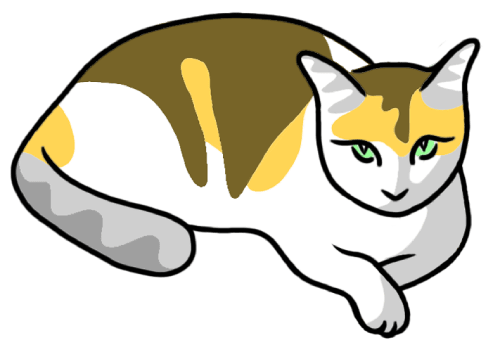Transferring Bricks page or template across sites
Fetch a Bricks page or template from this WordPress site, and replicate it in some downstream WordPress site

We can use Gato GraphQL with the Bricks extension to export a Bricks page or template from this WordPress site and replicate it in some downstream WordPress site.
This query exports a Bricks page or template from this WordPress site into some downstream WordPress site.
The Gato GraphQL plugin (free version) must be installed on the downstream website. It must expose an endpoint with "Nested mutations" enabled.
Both sites must allow access to the corresponding custom post type, bricks_template and/or page.
The $update parameter indicates if to create or update a page/template in the downstream site.
If updating the page/template, the common identifier between the upstream and downstream sites is the slug.
We must provide the following variables:
postSlug: The slug of the Bricks page or template to transferdownstreamServerGraphQLEndpointURL: The GraphQL endpoint URL of the downstream WordPress siteupdate: Whether to create (false) or update (true) the page/template in the downstream siteusername: The username for authentication on the downstream siteappPassword: The application password for authentication on the downstream site
Here is the GraphQL query:
query GetPostData(
$postTypes: [String!]! = ["bricks_template", "page"]
$postSlug: String!
) {
customPost(by: { slug: $postSlug }, customPostTypes: $postTypes, status: any)
@fail(
message: "There is no Bricks page or template in the upstream site with the provided slug"
data: {
slug: $postSlug
}
)
{
rawTitle
@export(as: "postTitle")
rawContent
@export(as: "postContent")
rawExcerpt
@export(as: "postExcerpt")
status
@export(as: "postStatus")
customPostType
@export(as: "postType")
metaKeys(filter: { exclude: ["_edit_last", "_edit_lock", "_pingme", "_encloseme", "_trackbackme", "enclosure", "_thumbnail_id", "_wp_trash_meta_status", "_wp_trash_meta_time", "_wp_desired_post_slug", "_wp_old_slug", "_wp_old_date"] })
meta(keys: $__metaKeys)
@export(as: "postMeta")
}
isMissingPostInUpstream: _isNull(value: $__customPost)
@export(as: "isMissingPostInUpstream")
}
query ExportDownstreamGraphQLQuery
@depends(on: "GetPostData")
@skip(if: $isMissingPostInUpstream)
{
query: _echo(value: """
mutation UpdatePost(
$update: Boolean! = false
$postSlug: String!
$postTitle: String!
$postContent: String!
$postExcerpt: String!
$postStatus: CustomPostStatusEnum!
$postType: String!
$postMeta: JSONObject!
) {
customPost(by: { slug: $postSlug }, customPostTypes: [$postType], status: any)
@include(if: $update)
{
id
update(input: {
title: $postTitle,
contentAs: { html: $postContent },
excerpt: $postExcerpt,
status: $postStatus,
meta: $postMeta
}) {
status
errors {
__typename
...on ErrorPayload {
message
}
}
...on GenericCustomPostUpdateMutationPayload {
customPost {
...CustomPostData
}
}
...on PostUpdateMutationPayload {
post {
...CustomPostData
}
}
...on PageUpdateMutationPayload {
page {
...CustomPostData
}
}
}
}
createCustomPost(input: {
title: $postTitle,
slug: $postSlug,
contentAs: { html: $postContent },
excerpt: $postExcerpt,
status: $postStatus,
customPostType: $postType,
meta: $postMeta
})
@skip(if: $update)
{
status
errors {
__typename
...on ErrorPayload {
message
}
}
customPost {
...CustomPostData
}
}
}
fragment CustomPostData on CustomPost {
id
title
slug
content
excerpt
status
meta(keys: [
"_bricks_editor_mode",
"_bricks_template_type",
"_bricks_page_content_2",
"_bricks_page_header_2",
"_bricks_page_footer_2",
])
}
"""
)
@export(as: "query")
@remove
}
query ExportPostToWPSite(
$downstreamServerGraphQLEndpointURL: String!
$update: Boolean! = false
$username: String!
$appPassword: String!
$postSlug: String!
)
@depends(on: "ExportDownstreamGraphQLQuery")
@skip(if: $isMissingPostInUpstream)
{
loginCredentials: _sprintf(
string: "%s:%s",
values: [$username, $appPassword]
)
@remove
base64EncodedLoginCredentials: _strBase64Encode(
string: $__loginCredentials
)
@remove
loginCredentialsHeaderValue: _sprintf(
string: "Basic %s",
values: [$__base64EncodedLoginCredentials]
)
@remove
_sendGraphQLHTTPRequest(
input: {
endpoint: $downstreamServerGraphQLEndpointURL,
query: $query,
variables: [
{
name: "update",
value: $update
},
{
name: "postType",
value: $postType
},
{
name: "postSlug",
value: $postSlug
},
{
name: "postTitle",
value: $postTitle
},
{
name: "postContent",
value: $postContent
},
{
name: "postExcerpt",
value: $postExcerpt
},
{
name: "postStatus",
value: $postStatus
},
{
name: "postMeta",
value: $postMeta
}
],
options: {
headers: [
{
name: "Authorization",
value: $__loginCredentialsHeaderValue
}
]
}
}
)
}The variables would look like this:
{
"postSlug": "my-bricks-page",
"downstreamServerGraphQLEndpointURL": "https://downstream-site.com/graphql",
"update": false,
"username": "admin",
"appPassword": "your-app-password"
}